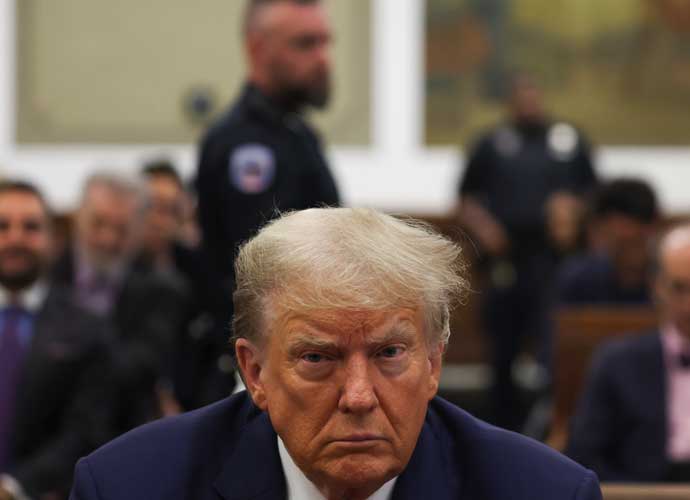

NEW YORK, NEW YORK - OCTOBER 3: Former U.S. President Donald Trump appears in the courtroom with his lawyers for his civil fraud trial at New York State Supreme Court on October 03, 2023 in New York City. Former President Trump may be forced to sell off his properties after Justice Arthur Engoron canceled his business certificates and ruled that he committed fraud for years while building his real estate empire after being sued by Attorney General Letitia James, who is seeking $250 million in damages. The trial will determine how much he and his companies will be penalized for the fraud. (Photo by Shannon Stapleton-Pool/Getty Images)
On Friday, U.S. District Judge Tanya Chutkan approved a three-week delay in former President Donald Trump‘s 2020 election obstruction case, granting special counsel Jack Smith‘s request for additional time to review the impact of last month’s Supreme Court ruling on presidential immunity.
Last month, the Supreme Court ruled 6-3 that former presidents have broad immunity from prosecution for official actions taken while in office but can be tried for personal conduct of official acts under specific exceptions to be defined by lower courts.
After the Supreme Court returned the case to her last week, Judge Chutkan set a Friday deadline for both sides to propose their next steps and scheduled a hearing for Aug. 16 for the federal case.
However, on Thursday, just a day before the deadline, Smith’s team requested an extension until Aug. 30 to brief the court on a proposed schedule and to set a hearing for September.
Subscribe to our free weekly newsletter!
A week of political news in your in-box.
We find the news you need to know, so you don't have to.
Late Thursday, in a two-page joint report to Chutkan, prosecutor Molly Gaston stated on behalf of Smith’s office that “the government continues to assess the new precedent” set by the Supreme Court through internal Justice Department consultations, but “has not finalized its position on the most appropriate schedule for the parties to brief issues related to the decision.”
Chutkan granted the delay and rescheduled the hearing for Sept. 5.
Trump’s lawyers, who will be in the final stretch before the November election with the Republican nominee facing Vice President Kamala Harris, did not object to the delay.
Trump’s 45-page indictment in D.C. alleges he conspired to overturn the 2020 election results by using false claims of election fraud to obstruct the government’s vote collection, counting and certification processes.
The indictment alleges that he sought to overturn the election results through five main actions: pressuring officials in key swing states to disregard the popular vote and alter electoral votes; attempting to submit fraudulent slates of electors; threatening Justice Department leaders to conduct sham investigations and falsely claim fraud; pressuring Vice President Mike Pence to use his role on Jan. 6 to overturn the results; and exploiting the Capitol riot disruption to enlist Congress in his effort.
The Supreme Court sent the case back to Chutkan, Trump’s trial judge, to address three questions: Which alleged actions by Trump fall under the executive branch’s constitutional authority and are immune from prosecution? Which actions are official but prosecutable because they do not threaten presidential functions? And which actions can be prosecuted as private conduct?
Chutkan is expected to use the parties’ submissions to determine which, if any, of Trump’s efforts to overturn the 2020 election while in office are prosecutable.
A trial before the election is unlikely, as Chutkan’s decision is expected to be reviewed by the Supreme Court next year.
Despite a short mayoral campaign, Cory Bowman, Vice President JD Vance's half-brother, found his way…
President Donald Trump announced his new appointment as interim U.S. attorney for the District of…
Ford Motor Company is increasing prices on several vehicles manufactured in Mexico, citing the impact…
Concerns are rising for Sen. John Fetterman (D-Pennsylvania) following a chaotic meeting with Pennsylvania teachers'…
With weeks remaining before their self-imposed Memorial Day deadline, House Republicans are growing more divided…
The Federal Reserve decided on Wednesday to hold interest rates steady, at 4.25 percent to…